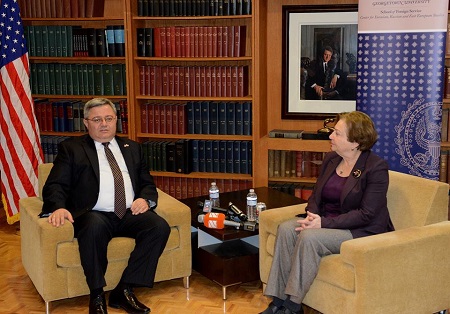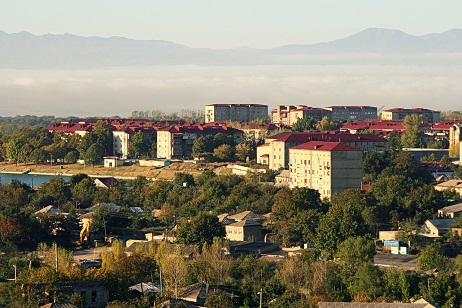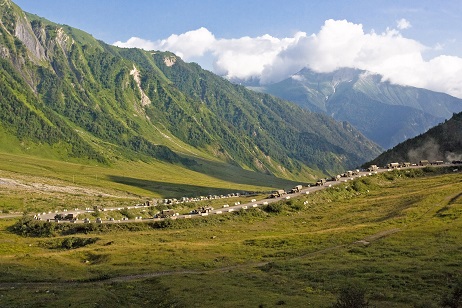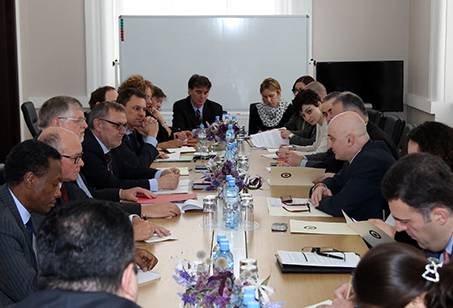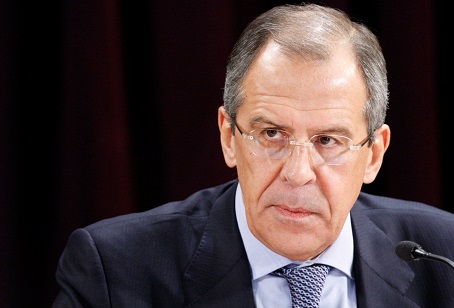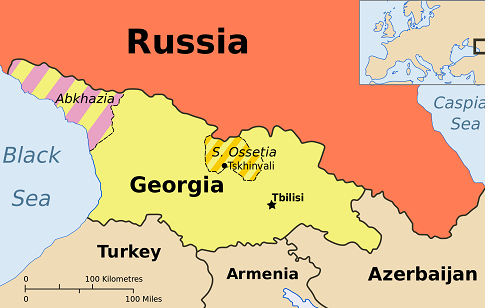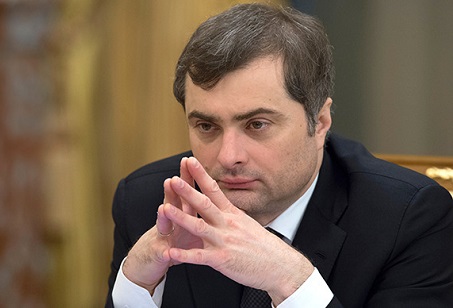Russia blames Georgia for rejecting ‘non-use of force agreement’
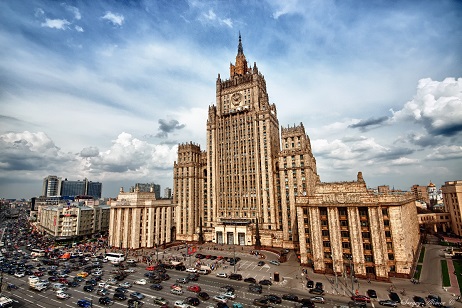
Moscow claims Tbilisi "persistently refuses to sign an agreement about a non-use of force” so it was forced to deploy Russian guards near the so-called border between Georgia and breakaway Abkhazia.
Moscow officials tried to defend its decision to deploy Russian troops in Georgia’s breakaway region and explained this was necessary because Tbilisi refused to comply with a non-use of force agreement – something heavily disputed by Georgia and the wider international community.
Today Russia’s Foreign Ministry issued a statement about the upcoming Moscow visit of Abkhazia’s de-facto Foreign Minister. The statement mainly focused on the visit agenda, including the Abkhazian envoy’s meeting with Russia’s Foreign Minister Sergei Lavrov, but it also stressed the importance of deepening Russia-Abkhazia relations in general.
"Russian-Abkhazian security cooperation is especially important in the context of Tbilisi persistently refusing to sign agreements on non-use of force. On the basis of the bilateral agreements, a Russian military base was deployed on the territory of Abkhazia. Our border guards guard the Abkhazian borders with Georgia,” the Russian Foreign Ministry’s statement read.
Meanwhile, it was Russia who was constantly urged by global community – with the latest statement coming from the OSCE Secretary General today – to adhere to the ceasefire agreement signed between Russia and Georgia following the August 2008 war, not the other way around.
Meanwhile the Russian Foreign Ministry’s statement noted the Abkhazian de facto leader would visit Moscow on March 10.
"During the upcoming March 11 talks, the ministers will discuss further development of friendly relations between our two countries, improving full-scale interstate cooperation and the strengthening of foreign policy cooperation, based on the Memorandum of Understanding between the Ministry of Foreign Affairs’ of the two countries on cooperation in the international relations of 23 December 2008.”
The statement added: "There will also be an in-depth exchange of views on topical international issues, topics of cooperation in the framework of the Geneva Discussions on stability and security in the Caucasus, in which Abkhazia receives equal participation.”
Russia began to recognise Abkhazia as an independent state following the Russia-Georgia war in August 2008. Since this time, Russia has "acted as a guarantor of its existence as an independent state and a peaceful future for the Abkhazian people. Our interstate relations, built on the basis of alliance and strategic partnership, are developing dynamically,” the statement said.
- Since 2008 Russia and Georgia’s breakaway region have signed 90 agreements of different levels and were now preparing to sign an additional 30 treaties. However the international community does not recognise Abkhazia as a subject of international law, which means any document signed between Russia and Abkhazia was considered "illegal” and had no legal power.
Abkhazia is located in the north-western corner of Georgia, with the Black Sea to the south-west and the Caucasus Mountains and Russia to the north-east. Russia recognised the region as an independent state in 2008, immediately after the five-day Russia-Georgia war over Georgia’s other breakaway region Tskhinvali (South Ossetia).
 Tweet
Tweet  Share
Share

